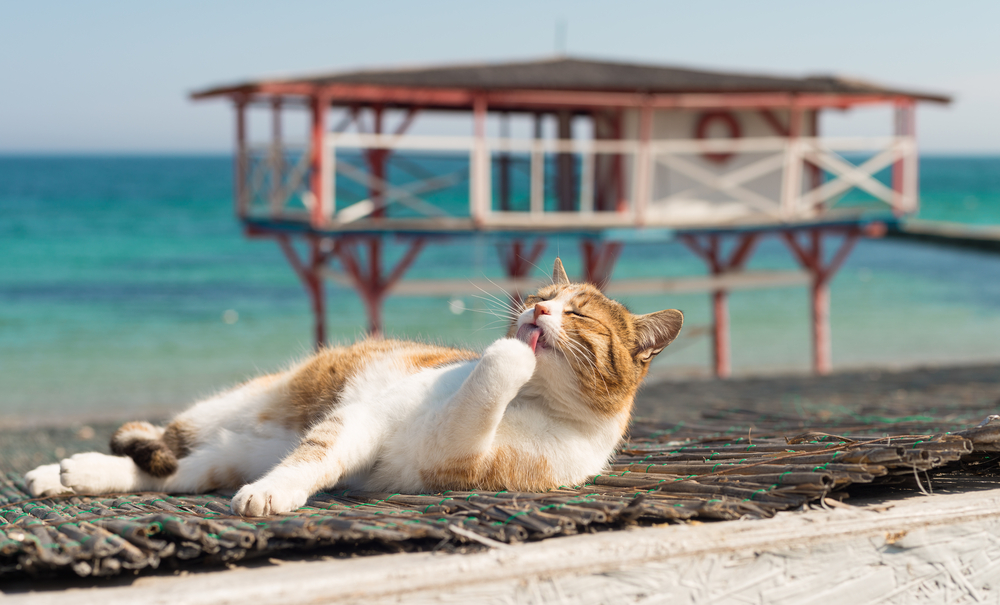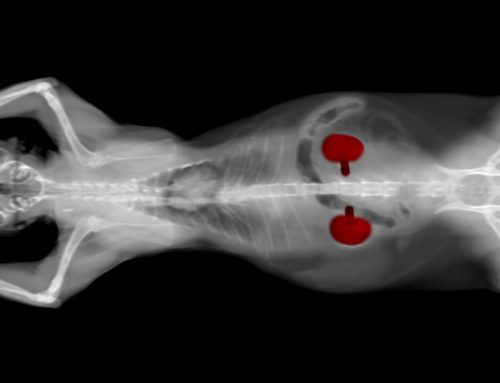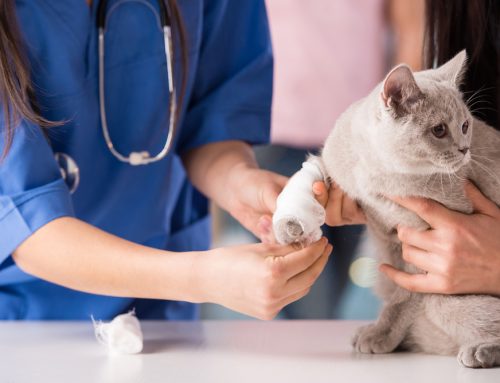Seattle summers are wonderful, but seasonal activities and weather conditions can pose a threat to your pet. Our Mercer Street Veterinary Hospital team wants your summer to be enjoyable. Therefore, we describe the conditions and situations that pose a threat to your furry pal and provide tips to help prevent these veterinary emergencies.
Summer pet emergency #1: Heatstroke
Summers tend to be mild in Seattle, but your pet can still overheat, especially if they have a high risk. While all pets are susceptible to heatstroke, certain ones, including flat-faced breeds (e.g., pugs, bulldogs, Pekingnese, Persian cats), overweight and senior pets, and those who have a medical condition, are at an increased risk. Heatstroke is a potentially life-threatening situation that causes detrimental effects throughout the body. To help prevent your four-legged friend from developing heatstroke, follow these tips:
- Never leave your pet unattended in a parked vehicle — Your pet is never safe when left unattended in a parked vehicle. Although the outdoor temperature may feel relatively cool, temperatures inside a parked vehicle rise about 40 degrees in an hour, quickly becoming life-threatening. Parking in the shade or leaving the windows cracked open isn’t sufficient to keep temperatures safe.
- Keep your pet hydrated — Dehydration increases your pet’s heatstroke risk. To replace fluid loss during the summer, your pet needs to drink more water. Ensure your pet always has access to fresh, clean water. Bring bottled water and a portable bowl so you can easily offer your pet a drink when you are on outings.
- Exercise your pet safely — Limit your pet’s strenuous exercise on hot days, and walk them during the early morning and evening hours when temperatures tend to be cooler. In addition, when on outings, take frequent breaks in the shade to let your pet cool down.
- Recognize heatstroke signs — Monitor your pet for heatstroke signs such as lethargy, excessive panting or drooling, red mucous membranes, vomiting, diarrhea, collapse, and seizures.
- Perform heatstroke first aid — If your pet overheats, move them to a cool, well-ventilated area, pour cool water over their body, and seek immediate veterinary care.
Summer pet emergency #2: Toxicity
Many foods, plants, and over-the-counter (OTC) and prescription medications are toxic to pets. Outdoor activities and summer gatherings can increase your pet’s exposure to dangerous toxins. To help your pet avoid toxin exposure, follow these tips:
- Ensure your pet doesn’t ingest party food — Numerous foods, including chocolate, grapes and raisins, onions and garlic, and xylitol-containing baked goods, are toxic to pets. To help prevent your furry pal from partaking in party food intended for people, provide them with pet-friendly treats. In addition, inform your guests that your pet isn’t allowed to have table scraps.
- Keep garbage in sealed bins — Keep garbage in sealed bins to prevent your pet from dumpster diving and eating a toxic substance.
- Secure guests’ belongings — Your guests may keep medications or xylitol-containing gum or mints in their handbags or outerwear. Place these items in a secure room that your pet can’t access.
- Research plants — Ensure all plants are pet-safe before adding them to your yard or bringing them into your home.
- Seek expert advice — If you know or suspect your pet has ingested a toxin, get expert advice on how to care for your four-legged friend by calling our Mercer Street Veterinary Hospital team or Animal Poison Control.
Summer pet emergency #3: Parasites
Mosquitoes, ticks, and fleas are more active during the summer, and these pests can be extremely problematic for your pet. Mosquitoes transmit heartworms, which can lead to life-threatening heart and lung issues. Ticks can transmit Lyme disease, Rocky Mountain spotted fever, and tick-borne relapsing fever. A flea infestation can cause your pet to develop anemia or flea-allergic dermatitis (FAD). In addition, fleas can transmit parasites to your furry pal. To protect your pet from parasites, follow these tips:
- Provide year-round parasite prevention — Ensure your pet receives year-round prevention against heartworms, fleas, ticks, and intestinal parasites.
- Check your pet — Check your pet for ticks, especially after outings. Ticks can attach anywhere on your pet, but common hiding spots include between their toes, in and around their ears, the groin and armpit areas, and under their tail and collar.
- Remove ticks — Most ticks need at least 24 hours to transmit disease, so remove these pests as soon as you find them on your pet.
Summer pet emergency #4: Sunburn
Your pet’s skin can burn when the ultraviolet (UV) index is high, which can also increase your four-legged friend’s skin cancer risk. Pets who are light colored, or have a thin coat or no hair have an increased sunburn risk. To protect your pet from sunburn, follow these tips:
- Stay in the shade — When outdoors, stay in the shade as much as possible, and always ensure your pet has a place to retreat and shelter from direct sunlight.
- Apply sunscreen — Pet-friendly sunscreens help protect your pet’s skin from sunburn. Avoid your pet’s eyes, and apply the product to their face, abdomen, and any body area with exposed skin. Reapply sunscreen every four to six hours, and after your pet gets wet.
- Use protective gear — If your four-legged friend isn’t a sunscreen fan, protective gear is also available to help prevent your pet’s skin from sunburn.
Summer pet emergency #5: Drowning

While many pets are excellent swimmers, some, such as flat-faced breeds and those who have short legs, have difficulty in the water. However, even the strongest swimmer can drown if they are injured or become overtired. To help prevent your pet from drowning, follow these tips:
- Provide a life vest — Outfitting your pet with a life vest is a good idea, especially if they are an inept swimmer. The vest should fit snugly enough that your pet can’t slip out of the garment, and it should not pinch or rub their skin.
- Teach your pet how to exit the pool — Pets love to jump in the pool on a hot day. However, your furry pal can get into trouble if they don’t know how to get out. Ensure your four-legged friend knows how to use steps or a ramp, and show your pet how to exit the pool.
Follow our tips to help keep your four-legged friend safe this summer. If your pet has a summertime emergency, contact our Mercer Street Veterinary Hospital team, so we can get your furry pal back to having fun in the sun as quickly as possible.



















Leave A Comment